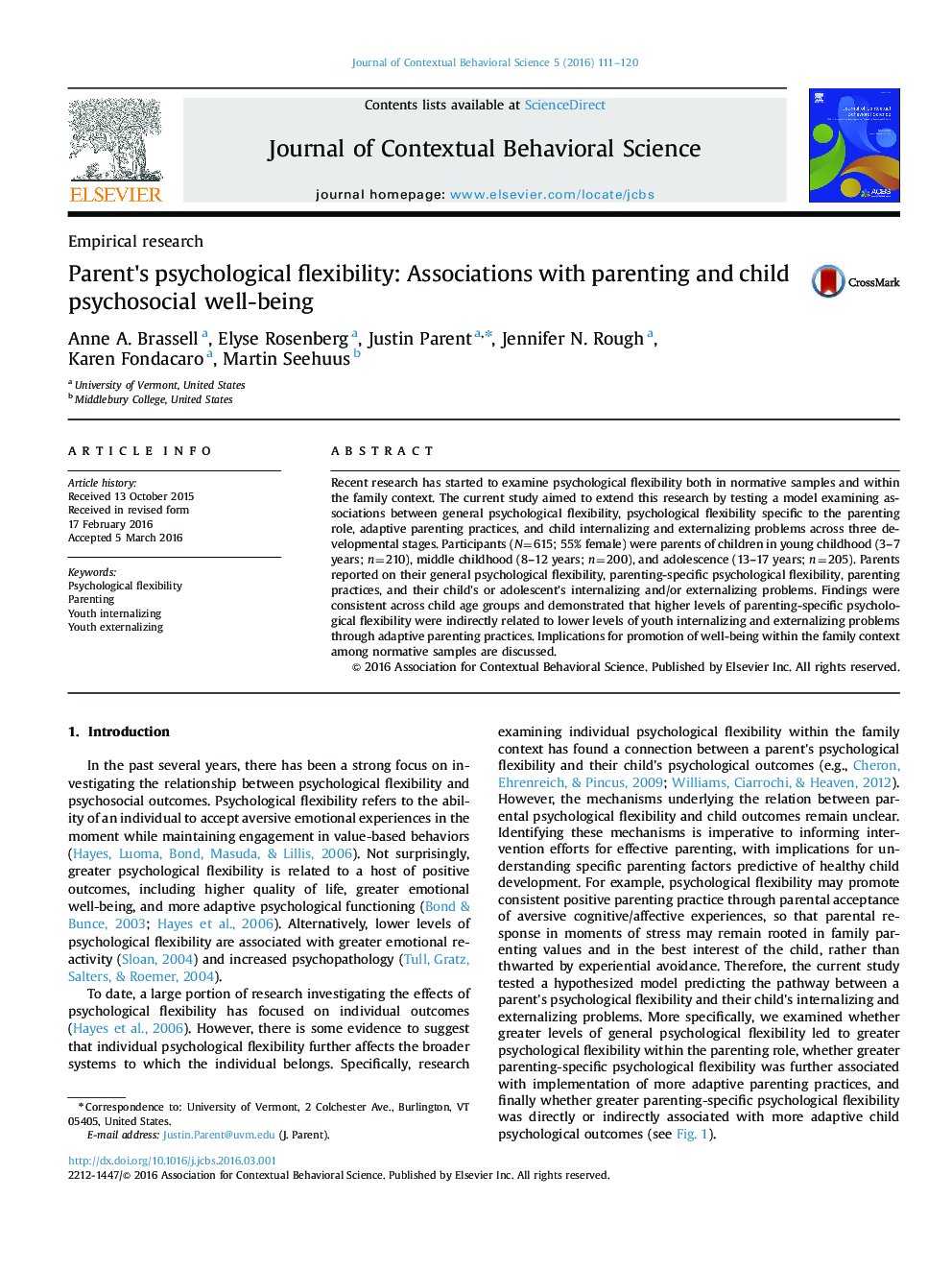| Article ID | Journal | Published Year | Pages | File Type |
|---|---|---|---|---|
| 911156 | Journal of Contextual Behavioral Science | 2016 | 10 Pages |
•Tested a model of parent's psychological flexibility in predicting child outcomes.•To examine its stability, the model was tested across three developmental Stages.•Parental PF was related to child outcomes through adaptive parenting practices.•The findings were supported across developmental stages.•Clinical implications are discussed.
Recent research has started to examine psychological flexibility both in normative samples and within the family context. The current study aimed to extend this research by testing a model examining associations between general psychological flexibility, psychological flexibility specific to the parenting role, adaptive parenting practices, and child internalizing and externalizing problems across three developmental stages. Participants (N=615; 55% female) were parents of children in young childhood (3–7 years; n=210), middle childhood (8–12 years; n=200), and adolescence (13–17 years; n=205). Parents reported on their general psychological flexibility, parenting-specific psychological flexibility, parenting practices, and their child's or adolescent's internalizing and/or externalizing problems. Findings were consistent across child age groups and demonstrated that higher levels of parenting-specific psychological flexibility were indirectly related to lower levels of youth internalizing and externalizing problems through adaptive parenting practices. Implications for promotion of well-being within the family context among normative samples are discussed.
